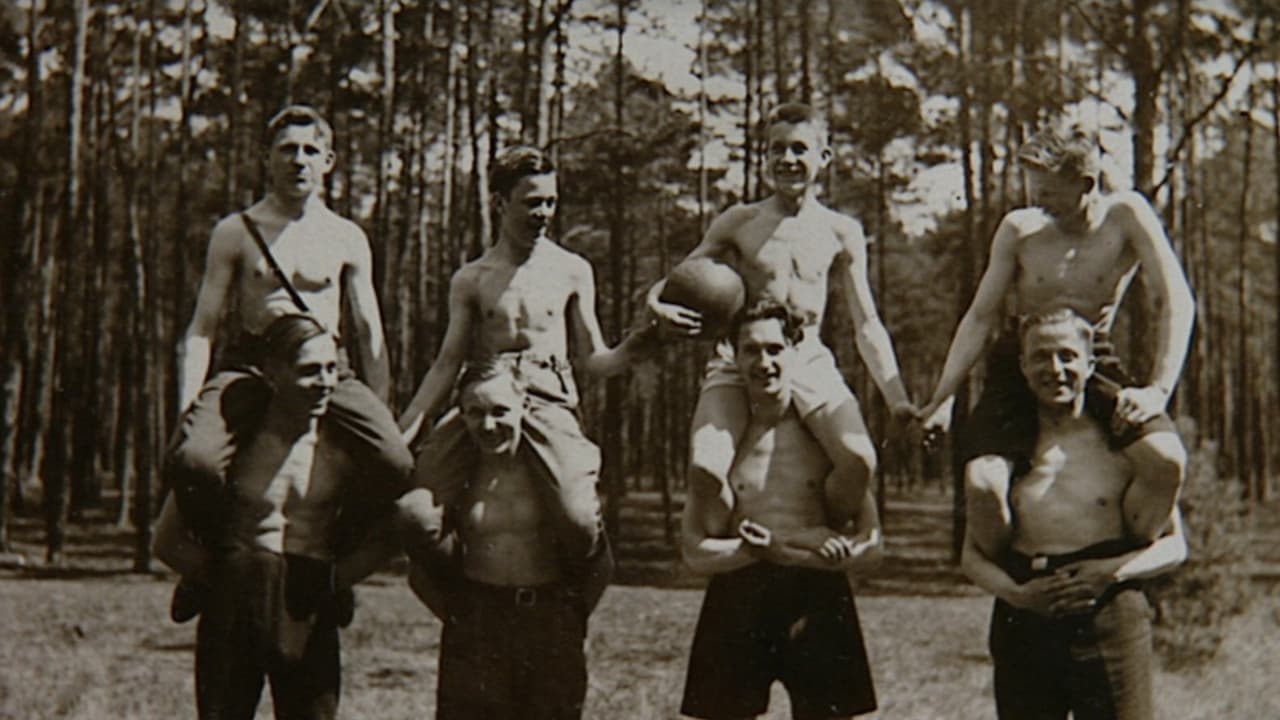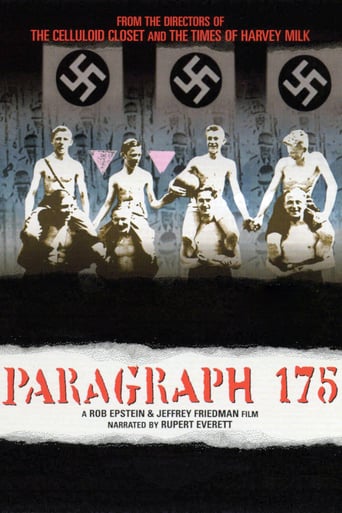



Surprisingly incoherent and boring
In other words,this film is a surreal ride.
This is one of the few movies I've ever seen where the whole audience broke into spontaneous, loud applause a third of the way in.
View MoreIt really made me laugh, but for some moments I was tearing up because I could relate so much.
View MoreProbably history was after all, meant to be a study of human consciousness in guilt. Of course, there is always a need to realize something valuable out of the past, that a study about the past is after all a human being's reverse-troubleshooting guide. Probably that's the reason why there are beautiful pictures of stoic, stiff-lipped people in our high school history text-books. We like to think of ourselves as the descendants of glorious generations, men and women valiant in their own right, contributing their bit to the proud bloodlines we carry today. We read on these people, associate ourselves with the affairs of their lives, judge them for their actions, name calendar days after them, hate them, worship them, write books on them, film biopics on their lives, name our babies after them The reason we can't forget these people could be because they've either given to or taken from this world in proportions far greater than what you or me have.Between the years 1933 and 1945 one man changed our world because he believed in something that seemed stupid at first. As time rolled into horror-fest mode, it turned into mankind's worst ever mistake. Something that psychologically stopped time and spun it backwards. We remember that man either because he took away from this world a chunk of our moral fiber, the scars forever etched in our minds, or probably because he gave this world freedom from the ideologies of mankind's vilest prodigy when he hanged himself.Today, history attests the importance of this period of madness with facts and figures that might seem absurdly horrible for our generation. We've all probably read enough to forget about a past like this. Biopics and documentaries have already dry-choked our tear glands at the horrifying experiences recounted by Jewish survivors. Pictures of gas chambers and mass-graves have already made us numb. And just when we thought that we knew too much to burden our consciences, comes a movie about this small group of men who disappeared off the face of the earth because of something that disturbs, intrigues and thwarts us till this day: Love, and all the stigma it carries. And for something so simple and subtle as love to take place between two people, there lies an even more absurd reasoning as to why the two people shouldn't be of the same sex. That's the Nazi regime's code of stigma, also known as Paragraph 175. And no, your fat, dog-eared history text book does not consider the lives of one hundred thousand men who lived during that time, loving others worth mentioning. These men died unnoticed and in secret captivity, so secret that even those labor camps within which they died are today not preserved for posterity. Few of those numerous men survived. Fewer live today. And fewer still are willing to come out of their dark closets of tears and share their experiences, unscripted and undistorted to a camera crew determined to make known to us such a vital, forgotten part of man's history.It's pretty obvious what the contents of Paragraph 175 of the German Criminal Code contained, judging by the number of innocent lives it consumed, it would be more appropriate if you'd watch the movie and learn rather than have me explain it to you in a website review. What's most unsettling is interestingly, not Paragraph 175 itself, considering the circumstances under which it took form. Rather, it's the fact that a law that was so fatal took a hundred and twenty three years from the time it was adopted in 1871, to be finally revoked in 1994. Even after the fall of Hitler in 1945, it still took close to fifty whole years and six amendments to finally strike it down.Nazis killed plenty of men, women and children. You certainly wouldn't expect the most powerful and conservative army in the world to go soft against gay men and women and suddenly endorse mutual love. Not at a time when your first-duty towards the people you love was replaced by the pride of the country. So in short, Nazis did what Nazis do best: kill. But, even after we thought the horrible era of an insane ideology was over and done with, heads of government still remained conservative and chose to ignore the ills of their pasts, dragging their feet through the marshes of sludge-bureaucracy.Rob Epstein conveys all of these truths with anger and emotion, throughout while interviewing these survivors. Some, among them is a half-Jewish gay resistance fighter who posed as a Hitler Youth member to rescue his lover from a Gestapo transfer camp in an ultimately futile effort; Annette Eick, the Jewish lesbian who escaped to England with the help of a woman she loved; the German Christian photographer who was arrested and imprisoned for homosexuality, then joined the army on his release because he "wanted to be with men" and Pierre Seel, the French Alsatian teenager, who watched as his lover was eaten alive by dogs in the camps.The statistics are staggering: Between 1933 and 1945, some 100,000 men were arrested for homosexuality, roughly half of them were sentenced to prison, and from 10,000 to 15,000 were sent to concentration camps. The camps were used for re-education, slave labor, castration and sadistic medical experiments. It's believed only about 4,000 survived their ordeal. It is interesting to note that the penal code didn't cover lesbians. The Nazis considered lesbians to be "curable." Women were regarded, as vessels of motherhood – increasing the German population was top priority – therefore, they were exempt from mass arrest. Most lesbians went into exile or quietly married gay men.There are only about 10 homosexuals left from this tragedy, and they interviewed eight for this special film. It was incredible and moving and, if you are not touched by their stories, then you are cast in stone.
View MoreThis film is an excellent example of letting people tell their story without embellishing the contextual situation. The extra material added to the interviews is perfectly balanced to put the interviews in their historical and personal context, without unduly expanding the context to overshadow what the (very few) survivors had to tell. Enough information is given about paragraph 175 and it's application during Hitler's reign and after for us to get an insight of its consequences, and the situation of denial of our 'civilised' western countries even today regarding the gay victims of this horror. But the focus is on the survivors' tale, not the context. This technique (too rarely applied) produced an extremely powerful documentary. I have seldom seen such a well balanced work.
View MoreParagraph 175 is a powerful documentary that deals with a provocative subject. I just wish filmmakers Jeffrey Friedman and Rob Epstein had fleshed out the subject a bit more. While this film about gay men who were persecuted and imprisoned under the Nazi regime, is in many respects absorbing, the film ultimately suffers from an overly narrow and constricted focus.Perhaps the problem was that there were just not enough men alive today who were willing to talk about their experiences. From the outset, the pool of interviewees was certainly going to be limited, but also limited is the actual archival footage of life in the concentration camps.Instead the directors have chosen to pepper the film with well-preserved family photographs, and lively footage of gay and lesbian culture blossoming during the days of the Weimar Republic after WW1. Sensitively narrated by British actor Rupert Everett, Paragraph 175 is all about the German penal code, which was originally enacted in 1871, and later used by the Nazis, to outlaw homosexuality.The penal code stated: "An unnatural sex act committed between persons of male sex is punishable by imprisonment; the loss of civil rights may also be imposed," But Paragraph 175 was never really enforced until the Nazi's came to power. This documentary centers on six emotional accounts of the most elderly and frail survivors of the concentration camps who, up until now, have repressed their stories.There's a Jewish gay resistance fighter who posed as a Hitler Youth member to rescue his lover from a Gestapo transfer camp in an ultimately futile effort; a photographer who was arrested and imprisoned for homosexuality, who upon his release joined the army because of the lack of men in his hometown and he "wanted to be with men." There's a young man who was freed from a sentence at Dachau only to be interned again at Buchenwald, and a Frenchman imprisoned from Alsace, who breaks down after telling of being raped and subject to inhuman torture. Their stories are indeed heart wrenching, because unlike the Jews, they have forced to live quietly, unable to share their horrific experiences for so long.It is interesting to note that the penal code didn't cover lesbians. The Nazis considered lesbians to be "curable." Women were regarded, as vessels of motherhood - increasing the German population was top priority - therefore, they were exempt from mass arrest. Most lesbians went into exile or quietly married gay men. One woman, who tells her story in the film, was given exit papers and was lucky enough to escape to England.The statistics are staggering: Between 1933 and 1945, some 100,000 men were arrested for homosexuality, roughly half of them were sentenced to prison, and from 10,000 to 15,000 were sent to concentration camps. The camps were used for re-education, slave labor, castration and sadistic medical experiments. It's believed only about 4,000 survived their ordeal.The situation didn't improve after the war. Paragraph 175 remained in force until the late sixties, so many gay men were re-imprisoned and subject to repeated persecution. In this respect, Epstein and Friedman should be largely commended for bringing this subject to the attention of the world, and telling these powerful personal stories before the last survivors die. Mike Leonard September 05
View MoreWhile I think that everyone should see this film because of its vitally important subject matter, I feel that because of lax editing and meandering, incomplete story telling, it was much less effective than it should have been.As just one example, and I have been studying Nazi persecution of homosexuals, the movie briefly refers to a gay man's friend who was killed by German Shepherd dogs in front of 300 people. I read a similar account on the Internet (I suspect it was the same case), in which graphic details were given of the brutality of the crime, details which, if you heard or read about, you would never forget. To just gloss over this compelling tale in the manner the movie does is inexcusable. How can one understand the true horror when it is glossed over.Additionally, one of the major points of this film should be how many gay concentration camp victims were still treated as prisoners after the war, specifically because of Paragraph 175. It is barely a footnote in the movie. This is inexplicable to me.What is good is having a record of living survivors of gay detention during the Holocaust. It remains the reason for seeing this movie. But the narrative is very meandering and a few of the lingering close-ups of some of the survivors breaking down almost feels exploitative.Bottom line: because of the important subject matter and the live interviews the film needs to be seen. I just wish it had been made more coherently. A film with this type of material will always be powerful. It could have been far more so had it been made by better filmmakers.
View More